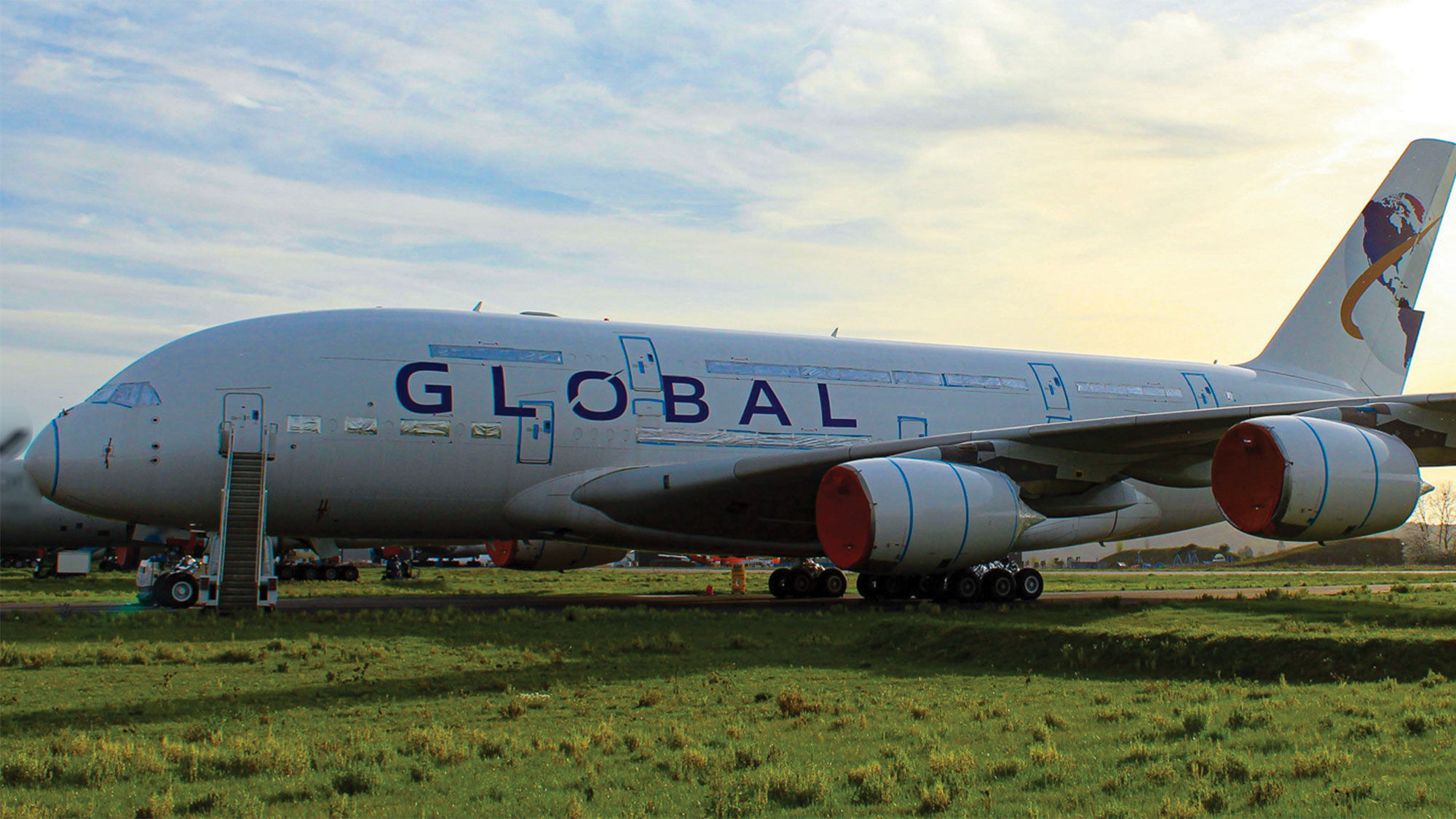James Asquith, CEO of U.K.-based startup Global Airlines, said he believes it’s possible to take on the majors in some of the world’s most competitive air markets, as long as you have a differentiator.
The airline intends to launch operations sometime next year on two high-profile routes: London Gatwick to New York JFK and LAX. And its differentiator will be especially big: the Airbus A380.
“Passengers love it, if it’s the right setup,” Asquith said of the planes, the largest civilian aircraft in the sky.
Longer-term plans call for global expansion using only A380s.
Global Airlines’ unique business concept appears to defy industry practice. The A380 gets little affection from established airlines, largely due to high operational costs and the challenges of finding markets large enough to consistently fill seats.
Poor sales of the A380 led Airbus to cease production of the plane in 2021. More than half of A380s currently in service are operated by just one airline, Emirates.
But for Global, that lack of interest has spelled opportunity. The company now has four A380s under purchase contracts at undisclosed prices presumed to have been bargains. Global hinted in a May statement that it acquired the first plane on the used market for an amount in the tens of millions. That compares to the pre-pandemic Airbus list price of more than $400 million for a new A380.
Asquith said Global Airlines will make the A380’s enormous double-decker size an asset by taking advantage of the flexibility it affords in terms of cabin layouts. The carrier will outfit its planes with economy, business-class and first-class cabins.
Of special note, Global Airlines interiors will feature social areas or lounges, offering what Asquith promised will be a throwback to the glamour of transoceanic flying’s golden days, when airlines such as Pan Am flew the world’s first jumbo jet, the Boeing 747-400.
He’s also promising a top-of-the-line experience in economy, although not by offering more legroom than most competitors. Global’s A380s will have 471 total seats, similar to the number offered by several other carriers. Where the Global economy cabin will excel, Asquith said, is through top-level food and entertainment, quality service and amenity kits.
Travel on a Global Airlines A380, said Asquith, will give transatlantic flyers the sense of pride that fizzled away in the modern airline industry.
Such assurances aside, Global Airlines to date has been relatively coy on certain specifics. The nascent carrier is a subsidiary of the U.K.’s Holiday Swap Group, best known for a platform that enables travelers to swap homes. Global hasn’t revealed how much financing it has raised, nor has it announced fundraising targets, though Asquith said the airline is in a strong position.
Similarly, the company has not set a target launch date as it works on startup requirements, including aircraft certifications. It also hasn’t revealed images of the cabin interiors; Asquith said that is likely by early January.
‘The math doesn’t seem to work’
Unsurprisingly, a concept as novel as an all-Airbus A380 airline has generated skeptics. One is Brad Beakley, CEO of consultancy Hospitio.
“I love the idea of something better, and I’ll give him a world of kudos for being able to generate the interest and news stories, and enough interest with investors, to be able to do what he’s done,” Beakley said of Asquith, who holds the Guinness World Record for being the youngest male to visit every sovereign nation in the world. “But the math just doesn’t seem to work for me.”
As an example, Beakley said the hourly operating cost of an A380 is approximately double what American Airlines pays to operate its Boeing 777-300s, though the Global A380s will have just 55% more seats. And consistently filling such a large plane will be difficult, especially on routes already crowded with major airline competitors.
“The idea is not wrong,” said Beakley. “But the practicality of unlimited demand, even for something like Gatwick-New York, is not there.”
Asquith said he believes the A380 will be Global’s decisive advantage.
“If there’s not enough space in the plane, you can’t justify things like social areas,” he said. “So, we are needing to make a statement different from what people have done before and failed. If you race to the bottom, you are going to be pushed out by incumbents who have bigger loyalty platforms, bigger networks and decent product.”
Source: Read Full Article
